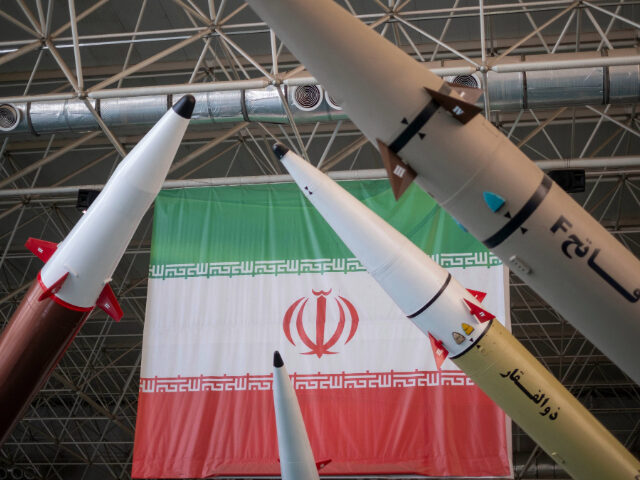International Atomic Energy Agency (IAEA) Director-General Rafael Mariano Grossi said on Thursday that Iran stymied nuclear inspectors as it tripled its uranium enrichment rate and increased its stockpile of near-weapons-grade material.
“It is a very frustrating cycle. We don’t understand why they don’t provide the necessary transparency,” Grossi told Bloomberg News at the World Economic Forum (WEF) meeting in Davos, Switzerland.
“While inspectors haven’t detected diversion of Iran’s uranium inventory for weapons, the manufacture and storage of so much material is raising concern,” Bloomberg noted. “Iran tripled its rate of uranium enrichment in December, rolling back measures which had been implemented amid backchannel diplomacy with the U.S.”
In another interview from Davos with the National, Grossi said Iran is clearly stretching the terms of its non-proliferation commitments.
“Iran is the only non-nuclear weapon state which is enriching uranium at this very, very high level — very close to weapons grade,” Grossi said.
“I’m not saying they have a nuclear weapon; I’m saying this is sensitive,” he added, urging Iran to “abide by the rules” if it insists on building an inventory of near-weapons-grade material.
“A snapshot shows a program which is galloping ahead, moving ahead with ambitious goals. We have nothing against that. But we say the visibility of the international inspectorate, the IAEA, must be commensurate with those activities,” he said.
Grossi was especially peeved at Iran for banning some of the IAEA’s most experienced nuclear experts in September. Iran did not provide an official explanation for the ban, but observers noted that all of the German and French inspectors working for the IAEA were included.
Iran has accumulated an enormous stockpile of uranium that is enriched far beyond any conceivable civilian need but just below the threshold for weaponization.
In November, the IAEA produced a confidential report that estimated Iran had enough 60-percent enriched uranium to build three nuclear bombs if the relatively swift procedure to bring it up to 90-percent enrichment was undertaken.
A group of diplomats leaked the report to the press out of concern that the international community was not taking the Iranian nuclear threat seriously enough. Those diplomats felt the Biden administration was inclined to offer Iran more concessions to get it back to the nuclear negotiation table, but such an appeasement strategy was unlikely to work.
In December, the IAEA said Iran was producing about nine kilograms of 60-percent enriched uranium every month, returning to its production level from the beginning of 2023. The U.S. joined with France, Germany, and the United Kingdom to denounce Iran’s dash for uranium enrichment as a “backwards step” that demonstrated a “lack of good faith” and “reckless behavior in a tense regional context.”
Recently, that “tense regional context” includes Iran trading missile fire with its neighbor, nuclear-armed Pakistan. Iran has long sponsored terrorism across the Middle East and dramatically increased the tempo of its attacks through proxies after the Palestinian terrorist organization Hamas started a war with Israel in October, but the regime in Tehran now feels emboldened to directly attack targets in Iraq, Syria, and Pakistan.

COMMENTS
Please let us know if you're having issues with commenting.